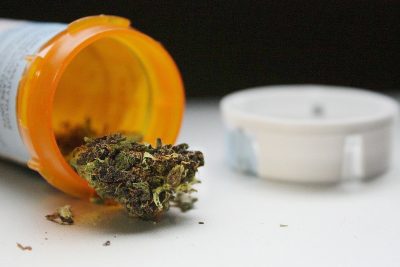
Boston is one step closer to getting its first recreational marijuana dispensary after the City of Boston awarded a conditional use permit on Jan. 15 to cannabis producer and retailer Ascend Wellness.
Once Ascend receives approval from the state’s Cannabis Control Commission, the business plans to begin construction on a five-story retail and storage facility in Downtown near TD Garden and hopes to begin serving customers by late fall in 2019, according to the company’s CEO, Andrea Cabral.
Cabral said the company is honored to be selected as the Boston’s first recreational cannabis store and that they understand the responsibilities that come with it.
“There’s always a responsibility to the city and the neighborhood and to ourselves to give people a premium retail experience and best-in-class products,” she said. “And that’s what we intend to do.”
The CCC has not yet voted on approving Ascend’s application for a state license, a spokesperson for the commission wrote in an email.
District 2 City Councilor Ed Flynn said he supported Ascend’s proposal because he was familiar with Cabral’s previous work as Suffolk County sheriff and Massachusetts secretary of public safety and was impressed with her vision for the company’s future.
“The proposal from former Suffolk County Sheriff Cabral was a sound proposal,” Flynn said. “It was based on a good business plan with exceptional public safety planning, access to public transportation.”
In preparation for the proposal to the city, Cabral said she began community outreach efforts in June 2018. The company signed “good neighbor agreements” with local community organizations and gave presentations to “demystify” the cannabis industry, she said.
“[Marijuana] has been demonized, it has been illegal our entire lives,” Cabral said. “… But when you actually explain to people what it is and what the facts are, and they’re able to separate that from the stereotype or the myth or the more speculative fear about it, you can have reasonable conversations with people.”
Cabral added that she thinks most people understand that both recreational and medicinal marijuana can be used in society.
“… People are coming to understand the versatility of this plant and also coming to understand that anything done in moderation, as long as it’s legal, is fine,” she said.
Legalizing recreational and medicinal products makes the cannabis industry safer as a whole, Cabral said, as the legal products are regulated and tested in laboratories to make sure there are no pesticides or additives.
“The CCC is really very strict about the enforcement of the regulations,” she said. “But people can take comfort in that.”
Mana Parker, 22, of Allston, said that while she thought the new dispensary would not do much to curtail Boston’s illicit marijuana market, she thought awarding the permit to Ascend and legalizing cannabis was a good choice.
“Legalizing marijuana was definitely a great step toward raising tax revenue for the state,” Parker said, “while also giving people access so they wouldn’t be criminalized anymore and to reduce the amount of people going to jail for non-violence related charges.”
Dorchester resident Pallavi Shrestha, 28, said she looked forward to the dispensary’s potential opening later this year but was worried that the high price of legal marijuana would prevent Boston’s poorer residents from purchasing from legitimate sources.
“I’m excited for people that need [marijuana] for not just recreational but for medicinal value,” Shrestha said. “The downside is because it’s going to be so regulated, it’s going to be harder for people on the poverty line to get it because now it’s not as accessible and cheap.”


















































































































